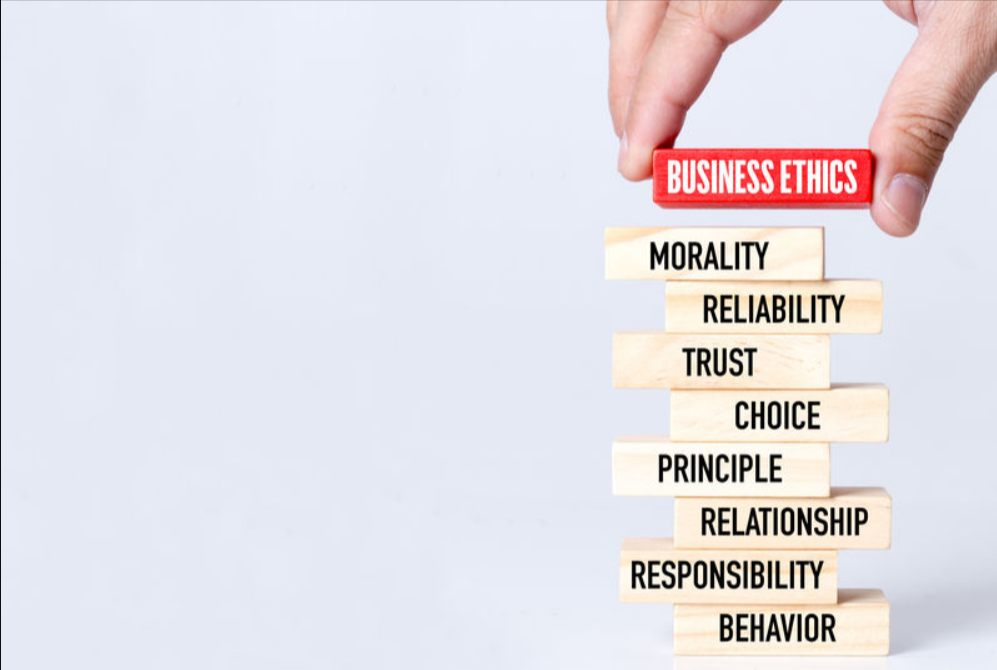Simply said, business ethics is the set of values that are applied to ensure that the entire company or business performs well, is ethically correct and cares for the employees, while striving to improve incrementally over time. If you’re someone who is not in the business you’ll be looking at this and think: Yes that’s an excellent thing and should be a part of the culture across all businesses and organizations. Right? It should be however, there are companies or businesses who do it for the sake of it. Why do they do this even though it’s for the well-being of the company employees, customers, and the company You might be wondering.
There always seem to be two aspects to a coin and it is important to consider what the disadvantages are to applying business ethics and only then can you comprehend the concept in a clearer way. That’s that we’re here today with this article on ethical business practices and their positives and negatives. Let’s go over the subject now.
Advantages of Business Ethics
1. Better Business Image
When companies adhere to ethical practices it significantly enhances their image as a business. A good reputation is essential and creates trust among consumers as well as investors in the company. It’s more than just a matter of avoiding scandals, however. It’s all about the way to build an image that reflects integrity and values. In the current world of digitalization having a reputation for being well-informed and educated is more crucial than ever, isn’t it?
2. Attracts Investors
Ethics are highly appealing for investors due to several reasons. When companies demonstrate a firm commitment to ethical conduct and practices, they can convince investors to believe that their capital is taken care of in a ethical and, if we could say so, ethically and the chance of scandals diminishes. This assurance can lead to increased investment and, in the end this could result in an increase or stabilization of the value of the company’s shares. For investors, investing in ethically sound businesses is investing in a future in which their contributions to the company are utilized to benefit the company which makes such investments less risky and possibly more profitable in terms of ethical and financial return.
3. Winning Customer Loyalty
To put it simple, people are more likely to remain loyal to an organization that shows respect for its employees, ensures that the and sourcing materials responsibly, and is in line with the principles of fair trade. In addition, loyalty extends beyond regular business, it transforms customers into brand ambassadors. A loyal customer can today be, in this digital age increasing the reach of your message for your brand, drawing new customers to your business and forming a community around your brand and what it is about.
4. Gaining a Competitive Edge
Integrity and ethics provide companies with a competitive advantage too. The transparency and fairness of the business operations that they run and are committed to social responsibility leave businesses attracting customers like honeybees and attracting industry talent. This ethical approach sets them apart from the other competitors that could be on the market.
5. Higher Employee Satisfaction and Retention
Ethics-based workplaces lead to increased levels of employee satisfaction and lower turnover rates. Equality, fairness and respect can ensure that employees feel that they are appreciated and valued, which is in line with productive work environment that promotes high productivity. For the employees this is a better work experience and a greater longevity.
Disadvantages of Business Ethics
1. Cost Implications
Keep in mind that maintaining ethical standards usually comes with the cost of. It’s not surprising that adopting green practices or buying modern equipment that is less harmful to the earth could cost you quite a bit. Additionally, making sure that employees are compensated and have great benefits can add to the costs. Most of the time, these expenses are viewed as investments to ensure your future business however, for a time, they could affect the financials a little.
2. May Limit Profit Maximization
When a business commits to ethical business practices can hinder its ability to earn the most money possible. For instance, a company may decide not to make with low-cost laborers who treat employees badly. While this is a morally correct option but it can result in a loss in order to earn a profit. This can be extremely difficult and particularly difficult in the industries where cost-cutting is among the main factors in staying at the forefront of the competition.
3. Conflict with Business Goals
There are instances where a firm’s ethical stance can be in conflict with its goal to succeed and grow in particular when marketplace is extremely challenging. This could be a good ethical choice however, to avoid doing business with countries that have an unsatisfactory record in human rights will seriously limit growth in business. It could be helpful to you, or perhaps you’re a part of a team that makes decisions in a business, then knowing about these conflicts is beneficial for you.
4. Compliance Complexity
Adhering to ethical standards frequently involves navigating many complex laws and regulations that may differ in every country. This can consume huge resources and could lead to issues in observing these regulations, particularly for businesses that operate in multiple nations. In the end, if you were to take the helm and also oversee these activities, keeping up with and observing these rules is crucial, but it can be quite difficult.
5. Potential for Ethical Dilemmas
The following ethical principles can result in difficult decisions when there isn’t a clear idea of the most appropriate option should be. In the case of these situations requires careful consideration and sometimes a compromise, which certainly doesn’t bring everyone to a happy place. If you’re an administrator or leader of an organisation, the best way to put actions is to contemplate these ethical concerns in complex circumstances.
Conclusion
That’s it. You now know the reason why ethics in business is an important aspect to take into consideration when selecting the right company or organization for you to make a bet, work for or purchase items from. We hope that this blog has explained the positives and negatives of business ethics in the most simple terms feasible, and with that we’ll be back next time.




